Whether you're looking to launch your first online store, or are considering making the switch from your current eCommerce solution, it's important to weigh up all of your options. This eCommerce platforms comparison guide gives you a snapshot of the core features and functionalities within each major platform, and highlights the many benefits of choosing Kooomo as your end-to-end digital commerce solution.
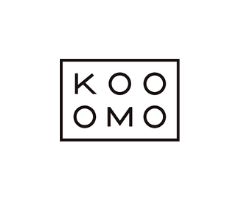 | 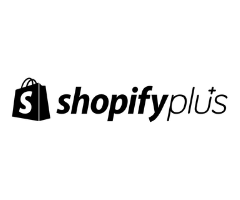 | 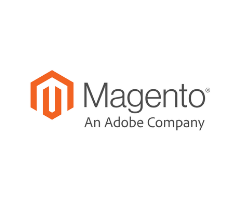 | 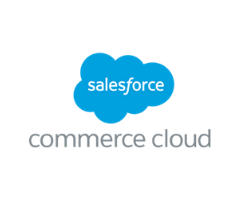 | 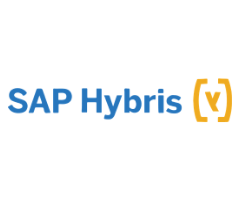 | 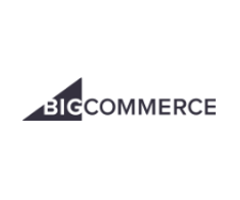 | 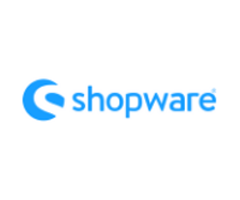 | |
|---|---|---|---|---|---|---|---|
| Company Information | |||||||
| Headquarters | UK & Ireland | Canada | USA | USA | USA | USA | Germany |
| Industry Experience | Founded 2000 | Founded 2004 | Founded 1985 | Founded 2004 | Founded 1997 | Founded 2009 | Founded 2000 |
| Cost & Time to Market | |||||||
| Average Implementation Cost | € 20-50k | € 18k | € 40-100k | € 500k + | € 600k | € 150k + | € 30k |
| Revenue Share | A tiered revenue share depending on client turnover upto 3% | x | n/a | 0.5-3% | x | x | x |
| Time to market | 1-3 months | 1-6 months | 3-6 months | 6+ months | 6+ months | 4+ months | weeks |
| Annual licensing cost | none | €24k + | € 24k + | none | varies | varies | 500 maintenance fees per month |
| System integrator required? | No | No | Yes | Yes | Yes | No | No |
| Business Model | |||||||
| Architecture | Cloud | Cloud | On-premise | Cloud | On-premise | Cloud | On-premise |
| ERP/EPOS Integration | In-house | Third-party Agencies | Third-party Agencies | Third-party Agencies | Third-party Agencies | In-house | Third-party Agencies |
| One click integrations | ✓ | x | x | x | x | ✓ | ✓ |
| Upgrades | Free of charge | Free of charge | Free of charge | Free of charge | Additional charge | Additional charge | Free of charge |
| Updates | Every 3 weeks | Regular | x | 6 times per year | x | x | Every month |
| Value-added services | Digital Marketing, SEO, Store Management, Warehouse Management | x | x | x | x | x | x |
| Features & Functionality | |||||||
| End to end solution (without needing integrations) | ✓ | x | x | x | x | x | x |
| Multi-language | ✓ | ✓ | ✓ | ✓ | ✓ | ✓ | ✓ |
| Multi-currency | ✓ | x | ✓ | ✓ | ✓ | ✓ | ✓ |
| Omnichannel | ✓ | ✓ | ✓ | ✓ | ✓ | ✓ | ✓ |
| Marketplaces Connector | ✓ | Via Partners | ✓ | ✓ | Via Partners | ✓ | ✓ |
| Distributed Order Management | ✓ | x | x | ✓ | ✓ | x | ✓ |
| Programming Language | php | html, css | php | proprietary Language | c, c++ | html, css | php |
| Front-end Design (Look & Feel) | CMS & Global ecosystem of agency partners | Shopify templates only | Third-party agencies | Third party-agencies | Third-party agencies | BigCommerce templates + customisation | CMS & agency partners |
Company Information | |
|---|---|
Headquarters | |
 | UK & Ireland |
 | Canada |
 | USA |
 | USA |
 | USA |
 | USA |
 | Germany |
Industry Experience | |
 | Founded 2000 |
 | Founded 2004 |
 | Founded 1995 |
 | Founded 2004 |
 | Founded 1997 |
 | Founded 2009 |
 | Founded 2000 |
Cost & Time to Market | |
Average Implementation Cost | |
 | €20 - 50k |
 | € 24k |
 | € 45-100k (Cloud edition) |
 | € 500k + |
 | € 600k |
 | € 150k+ |
 | € 30k+ |
Revenue Share | |
 | A tiered revenue share depending on client turnover up to 3% |
 | x |
 | x |
 | 0.5-3% |
 | x |
 | x |
 | x |
Time to Market | |
 | 1-3 months |
 | weeks |
 | 6+ months |
 | 2-4 months |
 | 6+ months |
 | 4+ months |
 | weeks |
Annual Licensing Costs | |
 | none |
 | $2,000USD a month for standard setups and integrations |
 | € 24k + |
 | none |
 | varies |
 | varies |
 | 500 maintenance fees per month |
System integrator required? | |
 | No |
 | No |
 | Yes |
 | Yes |
 | Yes |
 | No |
 | No |
Business Model | |
Architecture | |
 | Cloud |
 | Cloud |
 | Cloud & On-premise |
 | Cloud |
 | On-premise |
 | Cloud |
 | On-premise |
ERP/EPOS Integration | |
 | In-house |
 | Third-party Agencies |
 | Third-party Agencies |
 | Third-party Agencies |
 | Third-party Agencies |
 | In-house |
 | Third-party Agencies |
One-click integrations | |
 | ✓ |
 | ✓ |
 | x |
| Salesforce | x |
 | x |
 | ✓ |
 | ✓ |
Upgrades | |
 | Free of charge |
 | Free of charge |
 | Free of charge |
 | Free of charge |
 | Additional charge |
 | Additional charge |
 | Free of charge |
Updates | |
 | Every 3 weeks |
 | Regular |
 | x |
 | 6 times per year |
 | x |
 | x |
 | Every month |
Value-added services | |
 | Digital Marketing, SEO, Store Management, Warehouse Management |
 | x |
 | x |
 | x |
 | x |
 | x |
 | x |
Features & Functionality | |
End to end solution (without needing integrations) | |
 | ✓ |
 | x |
 | x |
 | x |
 | x |
 | x |
 | x |
Multi-language | |
 | ✓ (multiple languages supported through single storefront) |
 | Via multiple storefronts (additional $2,000 a month per storefront) |
 | ✓ |
 | ✓ |
 | ✓ |
 | ✓ |
 | ✓ |
Multi-currency | |
 | ✓ |
 | Via Partners & multiple storefronts |
 | ✓ |
 | ✓ |
 | ✓ |
 | ✓ |
 | ✓ |
Omnichannel | |
 | ✓ |
 | ✓ |
 | ✓ |
 | ✓ |
 | ✓ |
 | ✓ |
 | ✓ |
Marketplaces Connector | |
 | ✓ |
 | Via Partners |
 | ✓ |
 | ✓ |
 | Via Partners |
 | ✓ |
 | ✓ |
Distributed Order Management | |
 | ✓ |
 | x |
 | x |
 | ✓ |
 | ✓ |
 | x |
 | ✓ |
Programming Language | |
 | php |
 | html, css |
 | php |
 | proprietary Language |
 | c, c++ |
 | html, css |
 | php |
Front-end Design (Look & Feel) | |
 | Built-in content management system |
 | Shopify themes only |
 | Third-party agencies |
 | Third-party agencies |
 | Third-party agencies |
 | BigCommerce templates + customisation |
 | CMS & agency partners |





When you’re weighing up all of your options for choosing your eCommerce solution, it’s important that you full understand understand eCommerce terms and their definitions to ensure that you’re picking the best platform for your business. Below is a list of the most common eCommerce terminologies and their definitions to help you cut through the jargon!